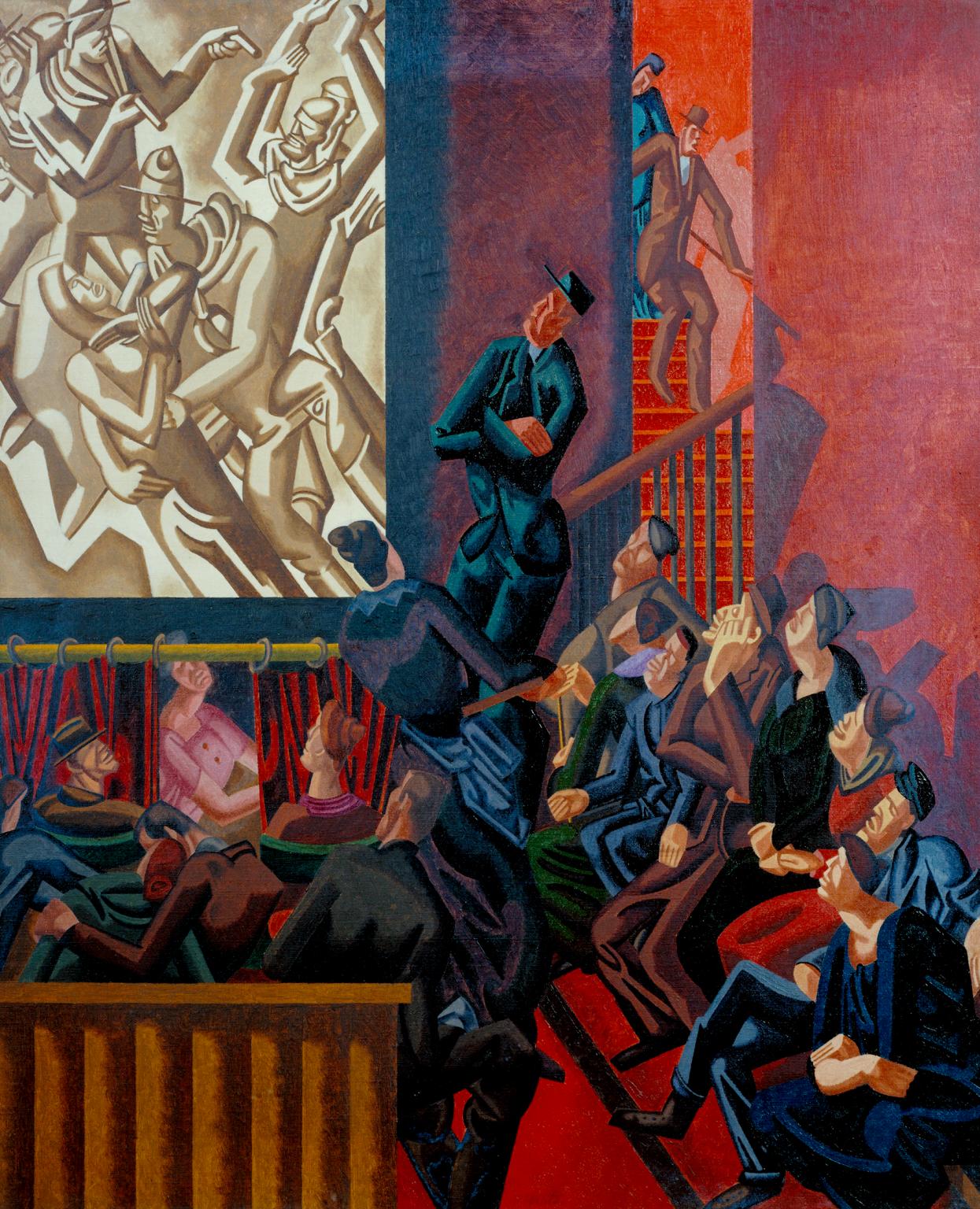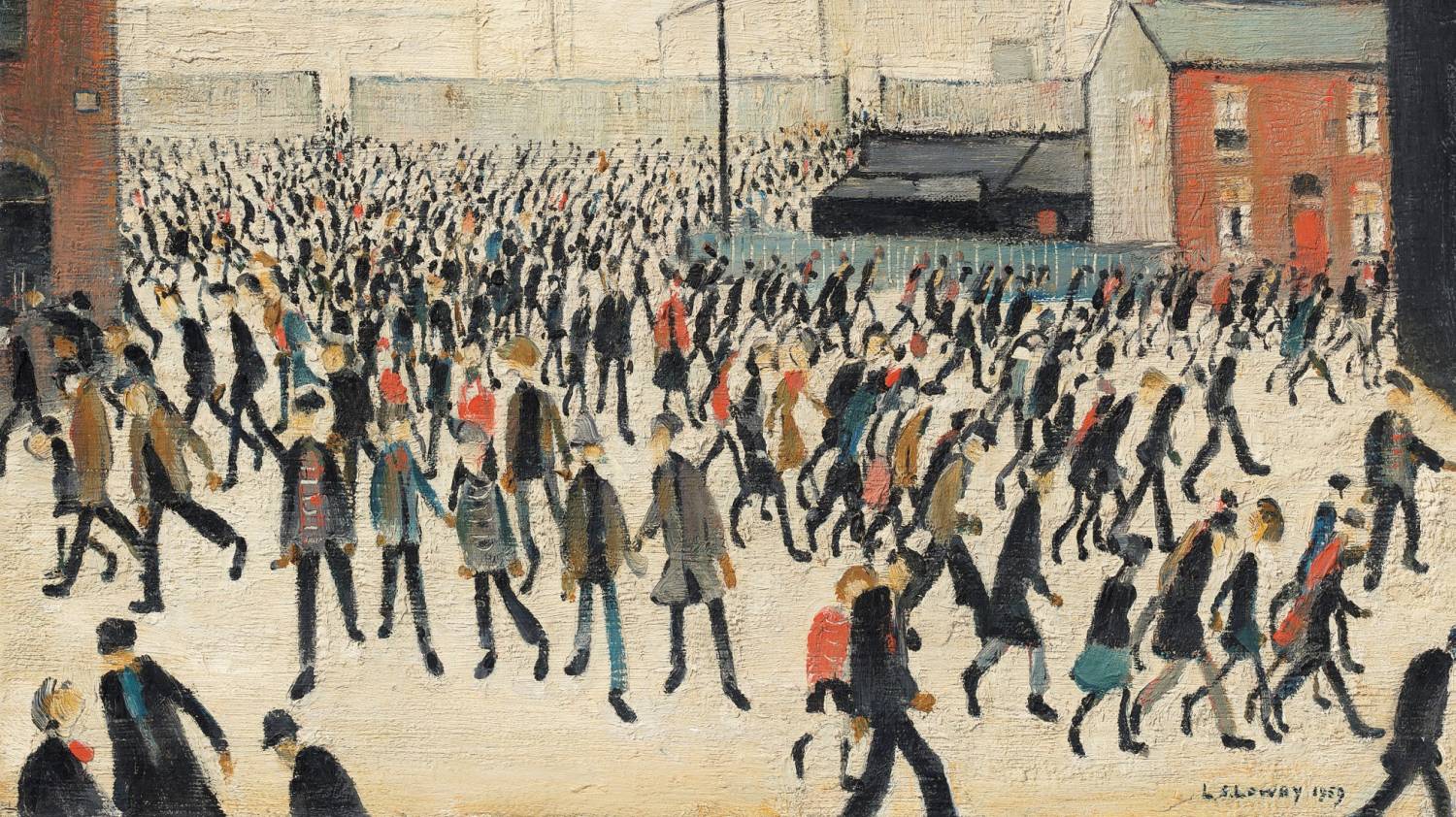Posts on: religion

The reader became the book; and summer night
Was like the conscious being of the book.—Wallace Stevens
I hold my hands up: in last year’s roundup, readers may have noticed a glaring contradiction. Despite declaring from the outset that the works listed had “nothing to do with me”, despite rallying against “individual ego-fictions” and exalting “impersonal threads of connection”, in many of the sections I ended up talking about, well, myself. I told anecdotes, confessed feelings, gave opinions; all the telltale signs of the subjective. How was this possible? How could I so squarely contradict myself?
Now I put my hands down, in defence: I do not think this was a contradiction. In fact, no: there was a contradiction, but it was precisely the contradiction that defines books’ existence as such. For as much as they are undeniably objects with a particular form and content, the fact remains that much of the joy we get from reading books is that what we discover in them is ourselves, from a new vantage point. Works written decades ago genuinely seem to capture “our” unique essence, and allow it to be socially expressed. As such, books can neither be reduced to mere subjective feeling nor a fixed objective form, but rather must be thought as a mediation between the two: they allow the subjective to be expressed objectively, and the objective to be brought home to the subject. As Adorno stresses throughout Aesthetic Theory, art is simultaneously an object that is merely made like any other, as well as more than a made object; and it is this contradictory state that drives art’s self-development.
If I fell into “subjective” mode when discussing books last year, then, ironically it was because I was simply trying to be faithful to them as objects. I have been keen to maintain this dialectic in this year’s roundup; I have, however structured it slightly differently. Whereas last year I generally grouped texts according to genre, canon or tradition (for example “Psychoanalysis” or “Music and Post-Punk”) this year I have largely organised the works I have read this year through a set number of concepts1. This is to bypass a problem that can occur when grouping by canon or tradition, which is the deadening of particular works and their relegation to a familiar “home”. When too cosily seated in the canon, works ossify under an established set of signifiers. Works in this situation can only be approached from the outside: one must brush aside all the thick brambles of tradition, commentary and secondary literature before one can approach the work in-itself. My method here, however, has been to approach the books I read this year from within, starting from my experience reading them and developing concepts based on this. The benefits of this method are manifold: not only does one more faithfully communicate the “spirit” of particular works, but one also frees them from their established homes and puts them in dialogue with other texts. One thus sees works not as fixed points in a hierarchy of tradition, but as an intersecting mesh of lateral connections; one sees the works as alive.
We should therefore be very sceptical of the word “about”: the works listed here are not “about” these particular concepts, nor is what I have written “about” said works. Writing “about” things is generally very tedious. Instead, I have attempted this year to open myself up to the “inner life” of what I have read, and sought to only develop concepts and theories that remain immediately in contact with this pre-conceptual interior zone. The goal is a kind of radical immanence: the reaching of a level where it is not that I am writing “about” works, but rather that what I write is the works, which then are the concept. On this level, concepts harmonise with the work’s “inner life”; indeed, they allow it to blossom, to properly externalise itself. A process of blossoming: this is what the concept is, or should be.
There are certain thinkers, usually comfy academic philosophers, that scorn this approach to theory and criticism, an approach which Mark Fisher practiced most acutely. They class it as too “subjective”, too contrarian, too distant from any established canon to have any relevance. Let these thinkers have their undead labels which they tragically mistake for reality. They are oblivious to what they are missing: the brute, unnameable fact of life.
-
Editorial notes: the below is a round-up of the many things I read and watched this year, including a mixture of books, poetry collections, short stories, essays, blog posts, newsletter entries, documentaries and films. A handful of things have been left out, some because I was largely uninspired by the work, others because, despite their quality, I could not honestly categorise. ↩

People wearing ornaments and fancy clothes,
carrying weapons,
drinking a lot and eating a lot,
having a lot of things, a lot of money:
shameless thieves.
Surely their way
isn’t the way.
Reciting some passages from it in my reading diary, I realise a significant line of affinity that I share with the Tao Te Ching: an intense disdain for busy-bodies, pragmatists and the rich, and a profound sense of care for the most common and “unimportant” things.
This pleases me very much. We can complain about “common folk” being deceived fools, too stupid for their own good, but at least in all this they are honest, and not conceited. The common person goes about their life with no pretensions to doing—or being—anything else; they go to work unenthusiastically, cook meals for their children, care for their elderly parents, call up their friends, and go to sleep. In all of this, there is never any expectation of return, never any hope of recognition or reward, and a humble acceptance of the unremarkable everyday sacrifices that uphold our entire civilisation. There is something genuinely beautiful in this.
By contrast, careerist busy-bodies and networkers always act with at least some ingrained sense of superiority, some desire to sell themselves and their ego. This vanguard of the chattering middle and upper classes enter society with the misled impression that they have the power to control it. Having listened to their teachers, got good grades, and received their university degrees, and thereby dutifully obeyed the imperatives of the bourgeois order, they then make the crucial mistake of identifying this obedience with “their choice”. The chattering careerists, with an almost comic regularity, tragically project their egos onto the most impersonal of things: society, capital, and the labour market. They hold tight to the utterly futile dream, applying for graduate jobs which they will obviously never get while refusing to apply anywhere else, turning a blind eye to the poverty, squalor and exploitation that actually characterises their life, as well as the world around them.
Having reached this position in adulthood, those of the chattering classes either fully sign up to this undead careerist path, or they realise its error, leading to the widespread phenomenon of the middle-class “slacker” (of which one could arguably categorise myself), the person who has benefitted from the advantages of a middle-class upbringing and—ironically through these advantages—come to realise their empty promise. If the chattering classes are constantly riding a never-ending elevator always reaching for that Perfect Career (And Therefore Life!) which is always just out of reach, precisely because it is an illusion, the middle-class slacker leaps off the elevator to join the common folk on the shop floor below, to try and find a genuine exit from this hellhole with them. This is never easy, because the middle-class slacker is used to riding on elevators their whole life; being on plain, flat, horizontal ground is deeply disconcerting to them. Furthermore, they also discover the horrifying sight that the elevator had been powered by the grunts and groans of the immiserated common folk below this entire time—a fact they had always taken for granted. The slacker sees the emptiness on their faces, the marks on their skin, the beads of sweat on their hairline; and yet they also see a rowdy conviviality, a laughter, alongside simple gestures of selfless kindness. Despite being on uncomfortable and unfamiliar terrain, the slacker thus begins to feel their previous emptiness dissipate within them; their hearts open, and are filled with love.
This is why it is the common folk, rather than the prosperous chattering classes, who are the most religious in any society: for it is they who most viscerally feel the brute determinism of life, the sheer necessity of self-sacrifice. It is precisely this necessity of sacrifice that is never truly learnt by the chattering classes – instead they view society entirely through the lens of exchange: everything must have a return, an interest rate. Thrown into the conviviality of the common folk, the middle-class slacker is challenged to do away with all their ingrained habits of exchange, and instead learn to sacrifice: to learn what it means to truly give. When they learn that, they will realise they were one of that strange, borderless and impersonal collective of common folk the entire time; they will learn the beauty of the faceless and the generic.
* * *
So wise souls are good at caring for people,
never turning their back on anyone.
They’re good at looking after things,
never turning their back on anything.
There’s a light hidden here.
Good people teach people who aren’t good yet;
the less good are the makings of the good.
Anyone who doesn’t respect a teacher
or cherish a student
may be clever, but has gone astray.
There’s a deep mystery here.
Hence why I always have more time for common folk than the notable, smart and successful, even if I technically have more in common with the latter. Amidst the common folk there is never anything to prove – one just is who one is. The atmosphere is essentially egalitarian: the assumption is that whatever you do or say, you will still be one of us amidst the muck, still one of us struggling by, and so there is no need or desire to compete with one another. This doesn’t mean that every conversation is amazing and fulfilling, but that they are, at least, honest and genuine, and underlaid by a firm, shared ground of mutual trust and respect. This means that when an intellectual conversation does somehow get sparked, it can develop in an authentic and above all truthful way.
Face to face with some Bright Young Thing From Graduate School who’s clued up on philosophy, however, I freeze: because I know all too well how easy it is to get drawn into stupid dick-swinging contests – conversations whose content is purely the recitation of the “right” sources and names, in order to appear intelligent and, by virtue, superior. These conversations are never fulfilling because the primary concern of each participant is not the production of a shared goal, but simply not to appear like an idiot. Unsurprisingly, this is completely counter-productive to the task of raising collective consciousness. Anxious and untrusting of each other, the conversation degenerates into a charade, subordinated entirely to appearances and self-interest. Unable to open themselves up and loosen the tight security systems of the ego, the truth which is always latent and indiscernible in any situation/conversation is prevented from coming to light; instead what we get is the tedious and undead recitation of facts and soundbites pulled from elsewhere. (Faced with these situations, I usually find the best response is to stay silent, and quietly slink off with all the other bored observers of this dick-swinging contest to talk about something that actually matters.)
Reflecting on this, I offer the following conclusion: in order to get to the stage where intellectual discussion feels genuinely enthralling and productive, one must pass through the “common” or “base” stage first – one must be willing to expose and humiliate oneself in front of the other. In short, only when both are bathed in filth and excrement can two people, facing each other, have a worthwhile intellectual conversation.
This is essentially what I have with Nick and Alex: together us three have been through the highs and the lows, seen each other at our absolute worsts, and it is precisely these acts of mutual debasement and sacrifice—in other words, a true and eternal friendship—that allow us to intellectually converse in a way that feels true and genuine. All the heavy, stifling load of egotism and self-importance have been long dropped at the door, allowing the intellect to run free.
If you think being intelligent makes you a “superior” person, then, you are still clinging all too tightly to that object that you ultimately must renounce: the ego. The development of intelligence is not the simplistic movement up a hierarchy (this is an illusion fostered by academic qualifications), but rather a paradoxical—some would say divine—movement that is simultaneously an ascension and a descension. The person digging deep into the grounds of her trauma, for example, feels as if she has been struck by the light; she feels refreshed, anew, with a new clarity of understanding and purpose regarding her life. And yet, as she experiences such beatitude, she is surrounded by dirt and soil, the raw matter of the cosmos, all the traces of her pain and suffering, her traumatic memories, worse times. This, however, is not a contradiction – rather, it is precisely what makes her enlightenment true, genuine. To truly move up is to, simultaneously, move down.
It is this dialectic of high and low that helps explain why Mark Fisher was revered so widely: because unlike all the trendy social theorists who lurk the conference halls of academia, he was flagrantly open in his acts of self-debasement. In reviewing Girls Aloud singles and Terminator films, he was essentially destroying any hope of appearing a “serious”, “highbrow” or “important” critic, or in touch with any of the hip trends in academia, cultural criticism, and so on. But this was also what endeared us to him, for it was an essentially proletarian, or “common” sensibility – for if this is what he was listening to or watching, why pretend otherwise? Why not just start there? This hard-nosed prole sensibility – a kind of unsentimental “realism”, for wont of a better term – is often corrupted into a reverence for “common-sense” and the obvious, but in essence it need not be. It is not the demand to know one’s place, to stay stuck writhing in the dirt of the ground, but the knowledge that one can only stand tall thanks to the firm and dirty ground they compress beneath them. Indeed, understood correctly, it is neither a base anti-intellectualism, nor a cloying middle-class desperation to keep up appearances, but instead a plain-clothed commitment to the Truth. It is a commitment to start from where one brutally and totally is, warts and all: to genuinely see who and where they are, rather than, as the chattering classes are wont to do, turn a blind eye.
After all, the Now is all there is; each and every one of us is happening for both the first and last time.
Start there.
Read More »

I may as well begin this roundup with a frank admission: at the beginning of this year, I did not know how to read.
Sure, I knew the technicalities: I was familiar enough with the particular socially agreed match-up of phonemes, graphemes and meanings that constitutes the English language. Familiar and capable enough, in fact, to practically inhale vast quantities of the written word. But we should be clear in asserting that such an ability to automatically respond to linguistic cues is not the same as reading, thinking, or intellectual practice in general. While it is such a practice’s necessary precondition, it is not the practice itself, which maintains its own singularity and uniqueness. For it is one thing to inhale, quite another to extract from that inhalation the oxygen that nourishes our intellectual bloodstream.
Things are changing, though. Last month, all too late in the year, I started a reading diary as a place to log my preliminary thoughts about the stuff I was reading, which were previously transiently flowing through me only to get lost in the aether. Principally, the diary is an attempt at commitment: a practice of staying faithful to and honouring the transformative impacts that books have on me, of – in Badiou’s terminology – showing fidelity to the Event (of reading). In our first readings of books, all we are left with is an accumulation of (positive or negative) sense-impressions or thoughts (“that bit was cool” “this bit was boring” etc), and maybe a few notes in the margins. Our duty after this first reading is to almost immediately begin a second reading, which drills into those particular sense-impressions and tries to clarify them, work out what in the book caused them to happen, at a level detached from (yet immanent to) the immediate experience of reading the book. This is what the practice of keeping a reading diary allows one to do: to give ourselves up to the books, to fully and psychedelically follow the path away from our “selves” that they set in motion.
Taking its cue from the reading diary, then, the principle of this roundup is precisely the opposite of showboating. Initially, the plan was simply to post a list of what I’d read this year, as some kind of achievement – but it quickly became apparent that this would be of no use to anyone, least of all me. A list such as that is like the initial material extracted from a mine, or the raw data collected by some online marketing platform: crude, incoherent, quite simply not ready. It is an uninviting mass that, far from being galvanised by some kind of connective or inspirational principle, simply lies there as sheer magnitude. A big, mangled rock of readings of philosophy, music criticism, literary modernism, SF and gothic horror, that no one wants to touch. (And even if, perversely, they wanted to, they wouldn’t know where to begin.)
When heaved and lugged onto the platforms of social media, those digital mirrors that provide the contemporary self with the reflected image that it mistakenly identifies itself with, this big mangled rock can only be self-serving and exhibitionist; a pseudo-intellectual form of dick-swinging. And lest it not be obvious, this is precisely what this blog stands against: the transmogrification of intellectual practice – quite simply, the practice of staying true to the Truth – into a putrid careerist ego-fiction. Intellectual practice cares little for what books are ostensibly “about”; it does not read blurbs. Instead it seeks to channel the real conceptual movements that weave through texts, extending and intensifying them into new, unknown zones. It operates in the underscore.
The below, then, has nothing to do with me. I can only predictably concur with k-punk when he wrote in 2004 that “writing, far from being about self-expression, emerges in spite of the subject.” And so it is with reading: when accumulated under the subjective frame of being “things I read”, the readings below can only appear as crude material, a mass of undifferentiated junk characterised only by its magnitude. But when the raw material is felt, held, and cradled, one begins to notice patterns; protruding excesses are transformed into murder mystery clues, ambivalent signs of something far stranger – and far beyond – any personal subject. (Adorno: “Every work of art is an uncommitted crime.”)1
What follows is therefore “my 2020 reading” as it deserves to be presented and acknowledged2. Not an individual ego-fiction, but various plateaus or planes of consistency, impersonal threads of connection. Not tightly policed “schools” of interiorised thought, but the open fields of the Outside. (Deleuze-Guattari: “A book itself is a little machine… [it] exists only through the outside and on the outside.”)3
Inherently defined by such an openness to the outside, such threads of commonality naturally bleed into and cross over each other – where does one field “end” and other “begin”? – and I will likely end up repeating myself. This is no problem, though: in fact it is precisely what allows us to see the works in their true form: flaming sites of multi-vehicle pile-up, the singular points of collision and intersection of the various planes of consistency that cut through them.
Or to put it more classically, we can say that this messy excess of cross-bleed is what allows us to stop seeing books as self-contained parts, and instead as particular instances of the Universal.
When one knows this, one knows how to read.
-
Theodor Adorno, Minima Moralia, part 72, “Second harvest”. ↩
-
Editorial notes: The below includes a mixture of books and shorter length pieces including articles, essays, interviews, blogposts, etc. A few things – some of them exceptional – have been left out, for one of two reasons: (1) because they did not seem to belong to any of the common threads that were at work in my reading this year (which is fine); and (2) because I either thought they were just not very good, or I still do not “get” them, or how to put them to use. ↩
-
A Thousand Plateaus, p.2. ↩
